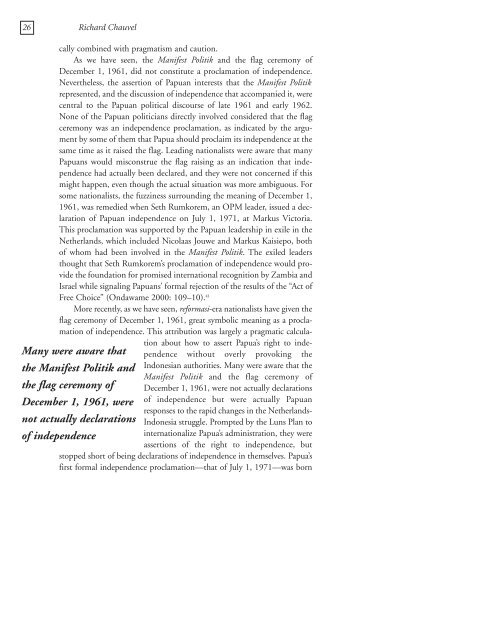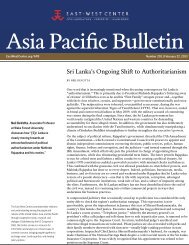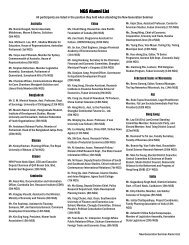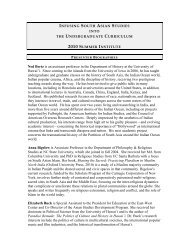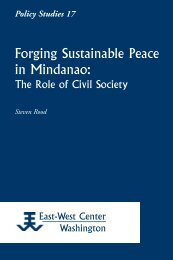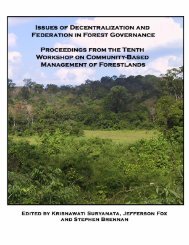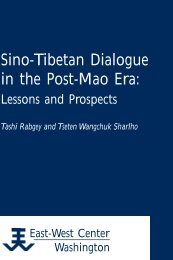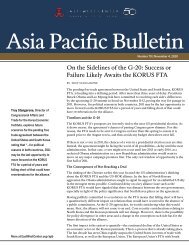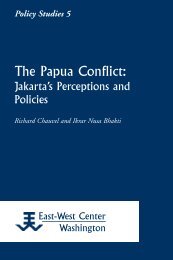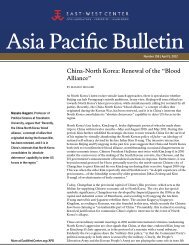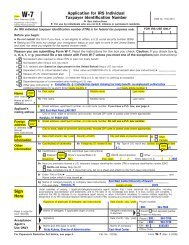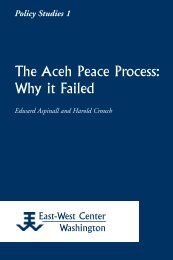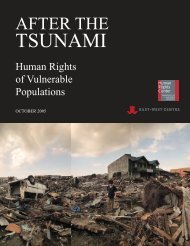Constructing Papuan Nationalism: History, Ethnicity ... - ScholarSpace
Constructing Papuan Nationalism: History, Ethnicity ... - ScholarSpace
Constructing Papuan Nationalism: History, Ethnicity ... - ScholarSpace
- No tags were found...
Create successful ePaper yourself
Turn your PDF publications into a flip-book with our unique Google optimized e-Paper software.
26 Richard Chauvelcally combined with pragmatism and caution.As we have seen, the Manifest Politik and the flag ceremony ofDecember 1, 1961, did not constitute a proclamation of independence.Nevertheless, the assertion of <strong>Papuan</strong> interests that the Manifest Politikrepresented, and the discussion of independence that accompanied it, werecentral to the <strong>Papuan</strong> political discourse of late 1961 and early 1962.None of the <strong>Papuan</strong> politicians directly involved considered that the flagceremony was an independence proclamation, as indicated by the argumentby some of them that Papua should proclaim its independence at thesame time as it raised the flag. Leading nationalists were aware that many<strong>Papuan</strong>s would misconstrue the flag raising as an indication that independencehad actually been declared, and they were not concerned if thismight happen, even though the actual situation was more ambiguous. Forsome nationalists, the fuzziness surrounding the meaning of December 1,1961, was remedied when Seth Rumkorem, an OPM leader, issued a declarationof <strong>Papuan</strong> independence on July 1, 1971, at Markus Victoria.This proclamation was supported by the <strong>Papuan</strong> leadership in exile in theNetherlands, which included Nicolaas Jouwe and Markus Kaisiepo, bothof whom had been involved in the Manifest Politik. The exiled leadersthought that Seth Rumkorem’s proclamation of independence would providethe foundation for promised international recognition by Zambia andIsrael while signaling <strong>Papuan</strong>s’ formal rejection of the results of the “Act ofFree Choice” (Ondawame 2000: 109–10). 41More recently, as we have seen, reformasi-era nationalists have given theflag ceremony of December 1, 1961, great symbolic meaning as a proclamationof independence. This attribution was largely a pragmatic calculationabout how to assert Papua’s right to independencewithout overly provoking theIndonesian authorities. Many were aware that theManifest Politik and the flag ceremony ofDecember 1, 1961, were not actually declarationsof independence but were actually <strong>Papuan</strong>responses to the rapid changes in the Netherlands-Indonesia struggle. Prompted by the Luns Plan tointernationalize Papua’s administration, they wereassertions of the right to independence, butstopped short of being declarations of independence in themselves. Papua’sfirst formal independence proclamation—that of July 1, 1971—was bornMany were aware thatthe Manifest Politik andthe flag ceremony ofDecember 1, 1961, werenot actually declarationsof independence


